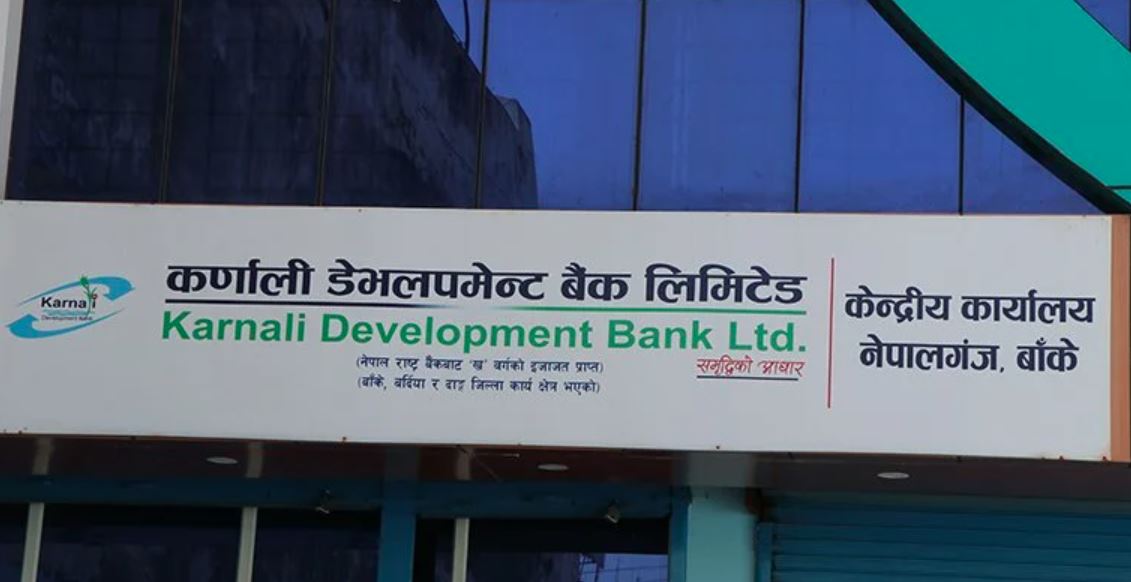Kathmandu: A former employee of Nepal’s central bank has been arrested in connection with one of the country’s largest banking frauds involving Karnali Development Bank, a financial institution recently declared troubled by regulators.
The Central Investigation Bureau (CIB) on Wednesday detained Bhuvan Basnet, 61, for allegedly helping conceal massive financial irregularities while serving as an inspection officer at Nepal Rastra Bank (NRB).
Originally from Sunsari and now residing in Kathmandu, Basnet is accused of submitting a favourable report on the bank’s health, despite its severe financial distress.
According to police sources, Basnet’s name surfaced after suspicious deposits were traced to his personal bank account. Investigators say he played a key role in masking the bank’s collapsing financial condition through falsified regulatory assessments.
The scandal erupted after a significant mismatch was discovered between actual deposits and figures shown in Karnali Bank’s core banking system. An internal audit by NRB revealed the use of fake balance certificates to hide years of financial mismanagement.
Following the discovery, the CIB launched a wider probe, which has since uncovered systemic fraud totaling an estimated Rs 2.5 billion (approx. US$19 million).
Basnet’s arrest is the latest in a string of high-profile detentions. Earlier, the bank’s founding chairman Rajendra Bir Raya was extradited from India, while Pashupati Dayal Mishra, a former chairman and central committee member of the opposition CPN-UML party, was arrested from Nepalgunj.
Former CEO Dinesh Kumar Rawat, finance chief Ved Prakash Thakuri, and senior executive Neeraj Vikram Shah are also under investigation, according to CIB officials.
Nepal Rastra Bank formally declared Karnali Development Bank a “troubled institution” in January 2025 under Section 86(b) of the Nepal Rastra Bank Act, citing serious violations of banking norms, including failure to maintain minimum capital adequacy ratios, a non-performing loan (NPL) ratio exceeding 40 percent, evidence of large-scale embezzlement, and liquidity shortfalls and inability to meet depositor obligations.
The bank had been operating with a capital base of Rs 502.8 million, but reported negative retained earnings of Rs 1.19 billion, raising serious concerns about insolvency.
At the time of regulatory takeover, Karnali Bank held Rs 5.18 billion in public deposits, but only Rs 1.69 billion in liquid assets. Its credit-to-deposit ratio stood at 57 percent, and core capital was well below the regulatory threshold, making its operations unsustainable.
To prevent further erosion of public confidence in the financial system, the NRB appointed a three-member management team led by Deputy Director Tikaram Khatri to oversee the bank’s operations. The team took charge on 26 December 2024 with a mandate to prioritize depositor protection, recover bad loans, and initiate legal proceedings against those involved in the financial misconduct.
The scandal has sent shockwaves through Nepal’s financial regulatory system. Internal tensions reportedly escalated within the central bank after the CIB requested a list of officials who had overseen Karnali Bank’s inspections. Sources say NRB Governor Bishwanath Paudel took personal interest in the case, reflecting the high stakes involved.
The matter is now seen as a litmus test for NRB’s commitment to transparency and regulatory accountability.
Established in 2003, Karnali Development Bank was one of the region’s prominent Class ‘B’ financial institutions. However, weak governance, regulatory failures, and unchecked corruption have brought it to the brink of collapse.
The NRB has vowed to complete a comprehensive due diligence audit, ensure repayment to depositors, and pursue criminal action against all those involved.
Basnet has been transferred to Nepalgunj for further questioning. The CIB says the investigation is ongoing and further arrests are expected.



Comment Here